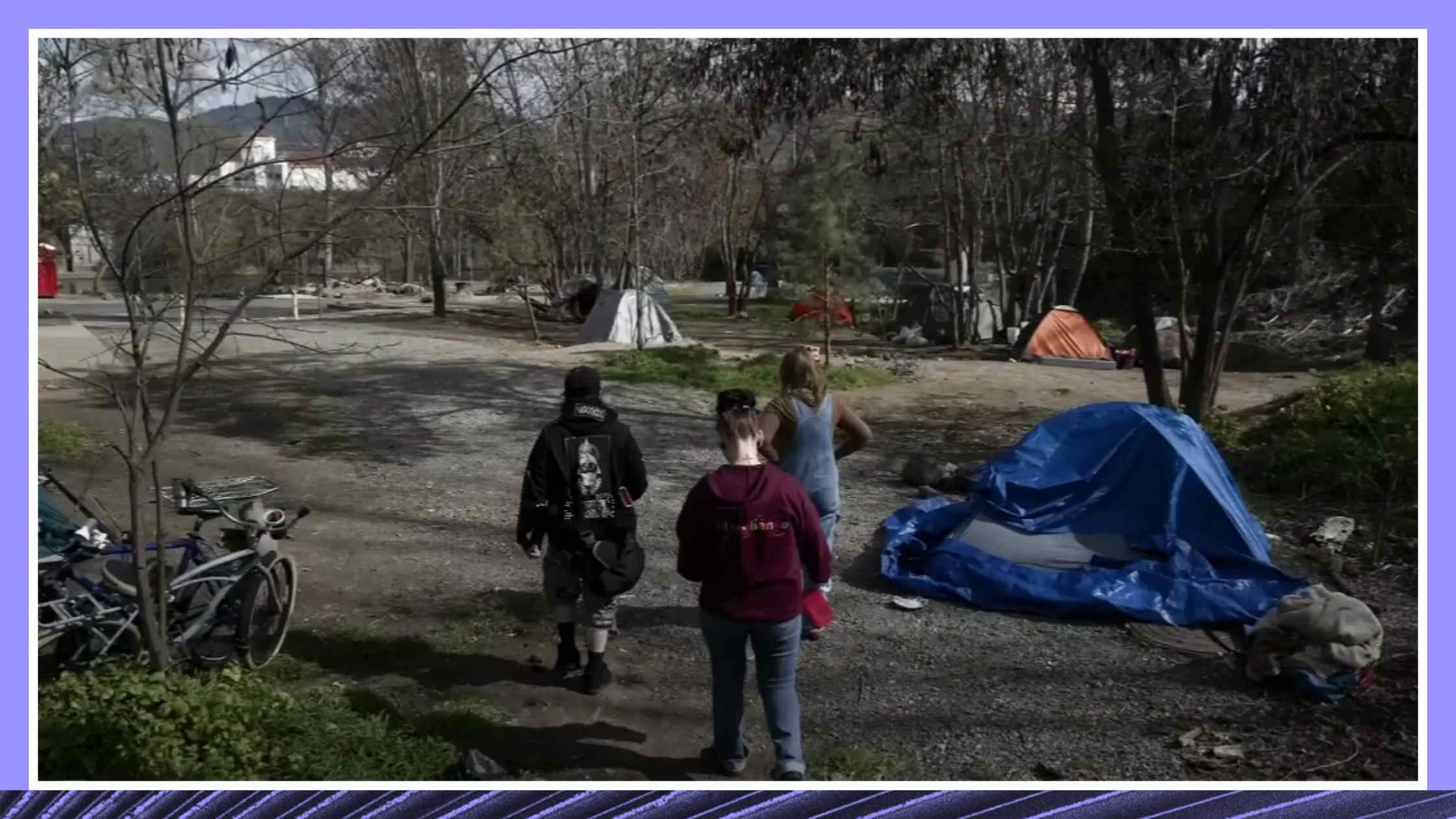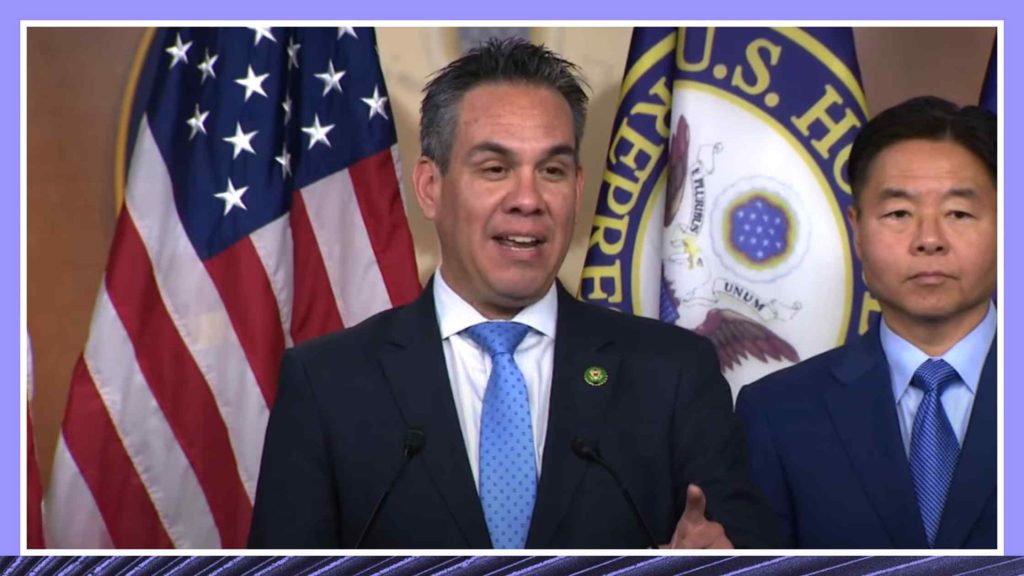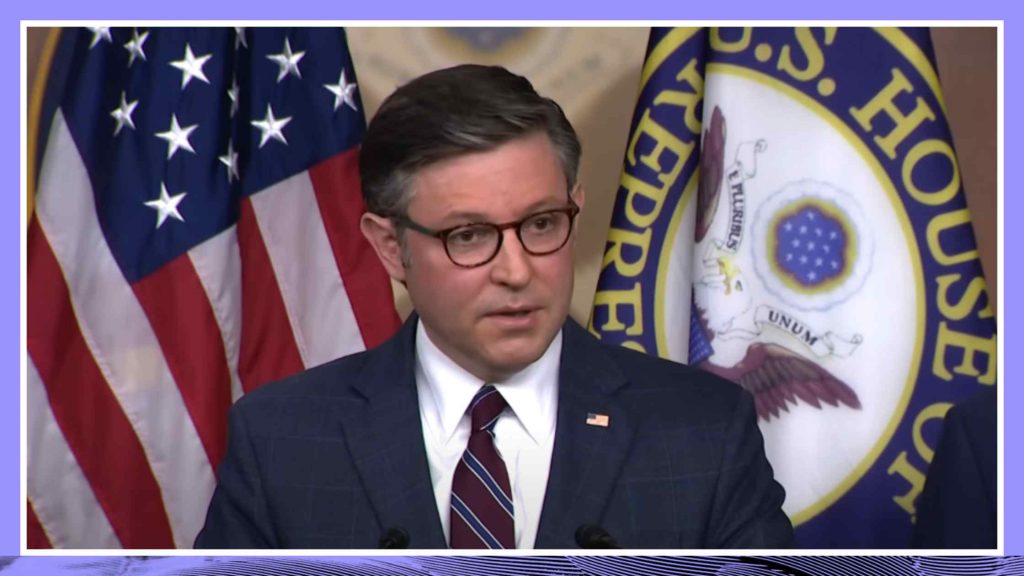Apr 23, 2024
Supreme Court Hears Case on Criminalizing Homelessness

The case looks at challenges to laws in a small Oregon town fining homeless people up to $300 for setting up camps in public parks. Read the transcript here.
Jeff (00:00):
The US Supreme Court today heard arguments in the most significant case on homelessness in decades. The case looks at challenges to laws in a small Oregon town for fining homeless people up to $300 for setting up camps in public parks. The heart of the question is whether these laws classify as cruel and unusual punishment. Our Supreme Court analyst, Marcia Coyle, has been following it all and joins us now.
(00:26)
Marsha, the justices expressed some concern that these laws punish homeless people who have no other choice really, but to sleep outside. What was the basis of this case?
Marcia Coyle (00:37):
Jeff, as you mentioned earlier, the lawsuit that was filed by the group of homeless citizens of Grants Pass claimed that the city’s ordinances prohibiting camping in public spaces really punished them and violated the Eighth Amendment’s cruel and unusual punishment clause. They said they were being punished because of their status as homeless, and the Supreme Court has said in earlier opinions that you cannot punish someone on the basis of their status. You can punish conduct, but not status.
Jeff (01:12):
Our team spoke with Ed Johnson. He’s an attorney who first brought the suit against this city, Grants Pass, Oregon, as well as Theane Evangelis. She’s an attorney representing the city who argued before the court today.
Ed Johnson (01:25):
These were people who had lived in Grants Pass sometimes for generations, certainly had lived there their whole lives and went to high school there, and then all of a sudden there was no place for them to live. This is not only not a solution to homelessness. It will make matters worse. They will have a criminal record, which makes it harder to convince an employer or a landlord to let you work there or live there.
Theane Evangelis (01:50):
In Grants Pass in a tent on a little league field, a dead body was found, believed to be an overdose. This is a very real crisis and people are dying on our streets. We think it’s safer and better for people to avoid camping in public, and that cities need to have the tools. These laws help encourage people to accept available shelter.
Jeff (02:13):
So Marcia, walk us through these arguments and how the justices tackled them.
Marcia Coyle (02:18):
Well, the arguments really were dominated by this dividing line between status and conduct. For example, the Supreme Court has said, you cannot punish someone for being a drug addict. That’s punishment on the basis of status. But you can punish conduct, say a drug addict’s buying and selling or possession of drugs. So the justices probed where is the line here between status and conduct. And so we had a lot of hypotheticals from the justices as they talked about what exactly is homelessness, what is the definition of it, and how do these ordinance play out?
Jeff (03:05):
And on that point, we heard Justices Kagan and Sotomayor focus on the Eighth Amendment, cruel and unusual punishment, and their concerns that this criminalizes homelessness. Here’s Justice Kagan.
Elena Kagan (03:18):
Your ordinance prohibits a single person who is homeless, so does not have another place to sleep, that’s a status. A single person with a blanket. And don’t have to have a tent. You don’t have to have a camp. It’s a single person with a blanket.
Theane Evangelis (03:34):
Sleeping in public is considered conduct-
Elena Kagan (03:36):
Sleeping a biological necessity. It’s sort of like breathing. I mean, you could say breathing is conduct too, but, presumably, you would not think that it’s okay to criminalize breathing in public. And for a homeless person who has no place to go, sleeping in public is kind of like breathing in public.
(03:53)
And your statute says that person cannot take himself and himself only and can’t take a blanket and sleep someplace without it being a crime.
Jeff (04:05):
So what should we take away from that, Marcia?
Marcia Coyle (04:07):
Well, first of all, during the arguments it was pretty clear that the courts, three more liberal justices, are more sympathetic to the homeless residents, citizens of Grants Pass because they do feel that they are being punished on the basis of their status. And I think Justice Kagan really explained that as clearly as she could, her position here. And yet, the city continues to claim that it’s not punishing status, it’s punishing conduct. The conduct is the camping in public spaces.
Jeff (04:43):
In the meantime the Chief Justice appeared to press the Biden administration, who had filed an amicus brief in support of the homeless parties in this case. Here’s what he had to say earlier.
John Roberts (04:54):
If there is a … the town next to Grants Pass, 10 minutes away, has just completed building a homeless shelter that has many vacant beds, does that change the analysis here? Because you don’t want to be taken 10 minutes away where there’s a homeless shelter?
Edwin Kneedler (05:14):
I think if they’re right across the town line, it would be appropriate to take into account that there’s a homeless shelter there.
John Roberts (05:20):
So what if it’s 30 miles away? Is the shelter available in that case?
Edwin Kneedler (05:25):
I think it depends on the accessibility is the problem here.
John Roberts (05:28):
How far does that go? Let’s say there are five cities all around Grants Pass and they all have homeless shelters. And yet the person wants to stay. Can that person be given a citation?
Jeff (05:38):
All right, so help us understand his concerns.
Marcia Coyle (05:40):
Well, he was trying to probe how far the supporters of the homeless citizens who filed the lawsuit are going to go before a city can actually take action as Grants Pass has in fining one of them, or even giving them jail time. So he kept extending his hypothetical from right across the border of the city, 30 miles away. What if there’s a whole group of cities nearby that have a shelter available and a homeless citizen does not want to leave Grands Pass? And he was somewhat frustrated with the government’s response because the government’s response is basically, it depends. These people, these homeless residents of Grands Pass have lived there for many, many years and there’s a community of interest that they don’t want to leave.
Jeff (06:34):
And finally, Marcia, where did it appear the justices are leaning in this case, and what are the implications of their ruling?
Marcia Coyle (06:41):
Well, certainly one thing they all agreed upon and said many times is that this is a very difficult policy issue. So my feeling right now is that they are divided and they’re going to go back and try to hash this out, maybe find common ground, maybe not, but it does seem as though the conservative majority is leaning towards the city. And the implications are huge, Jeff, because so many cities are dealing with this problem and what the Supreme Court has to say about what Grants Pass can do is going to affect how all the other cities try to address this problem.
Jeff (07:17):
NewsHour Supreme Court analyst, Marcia Coyle. Marcia, thanks as always. We appreciate it.
Marcia Coyle (07:21):
Always a pleasure, Jeff.
Transcribe Your Own Content
Try Rev and save time transcribing, captioning, and subtitling.



